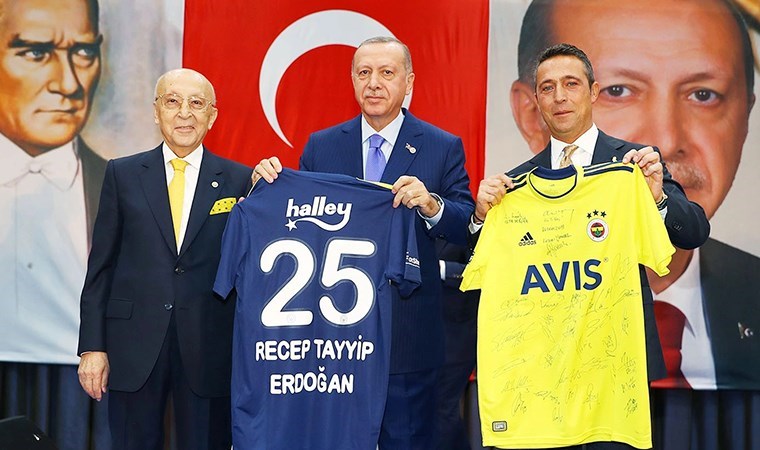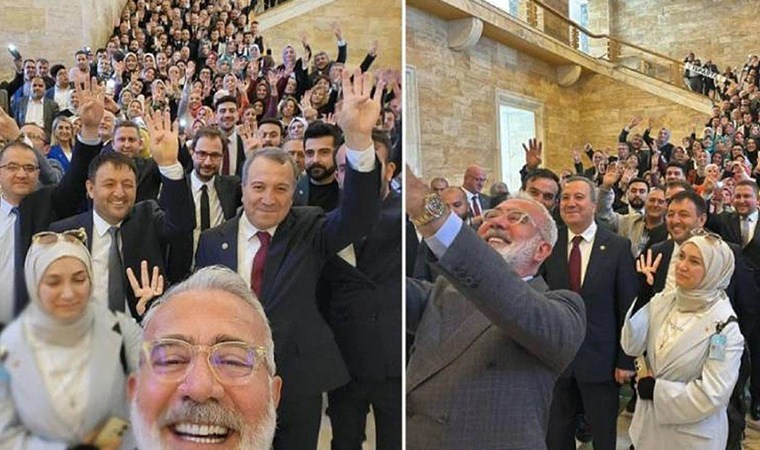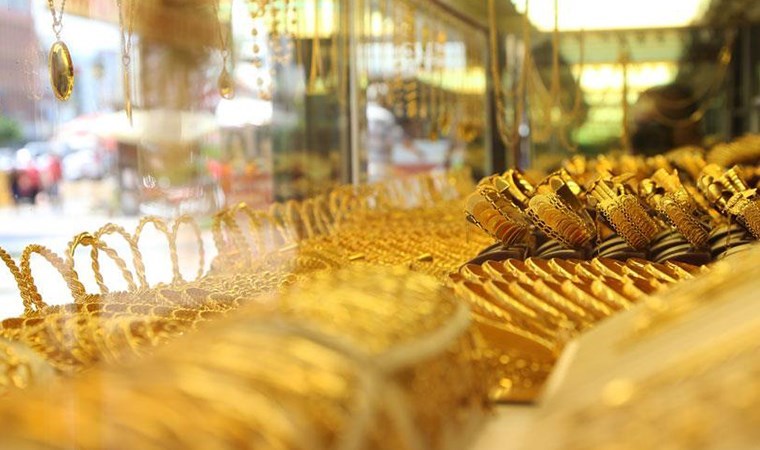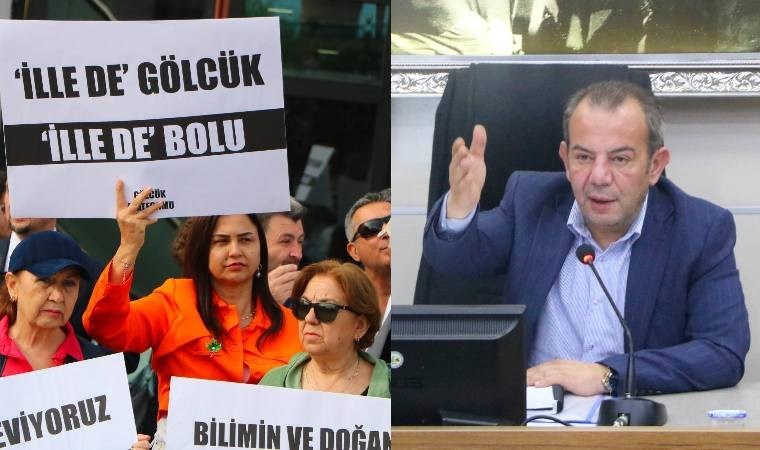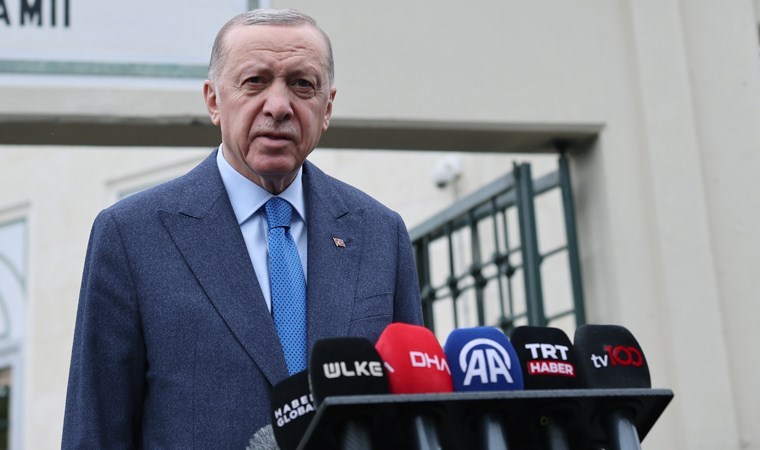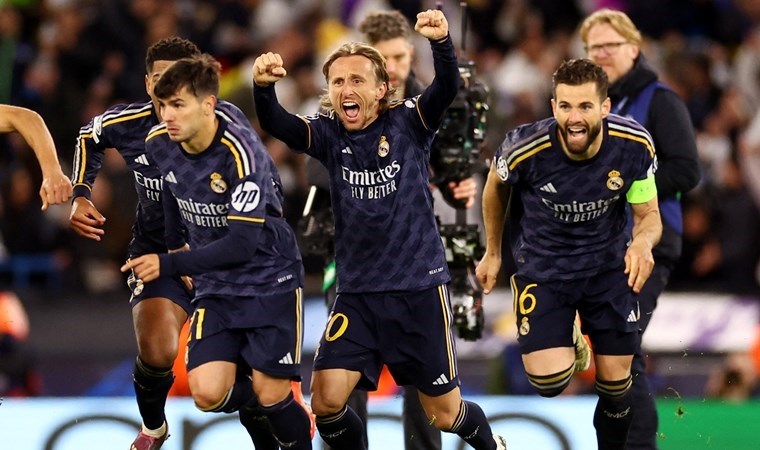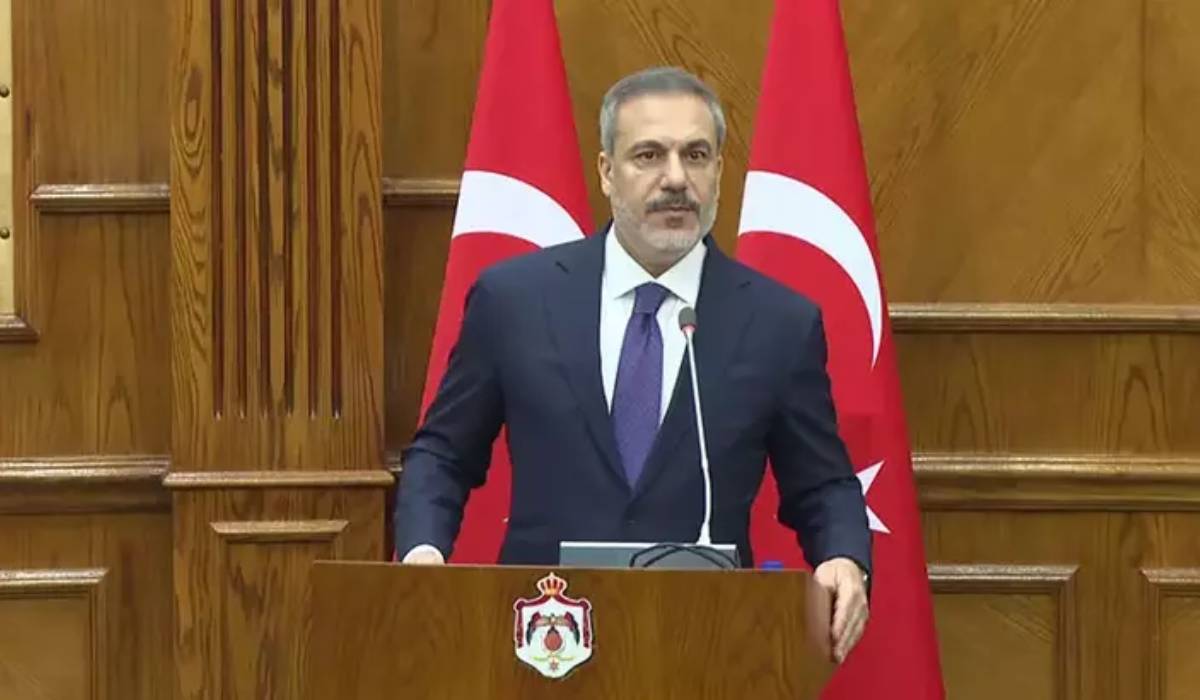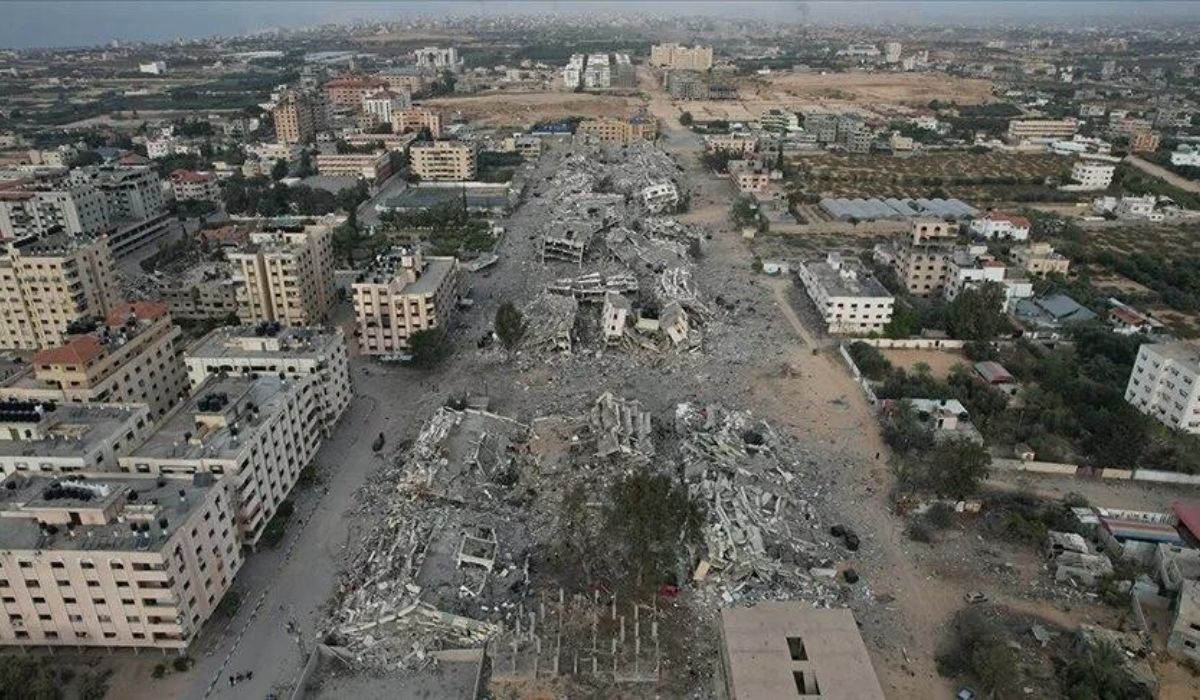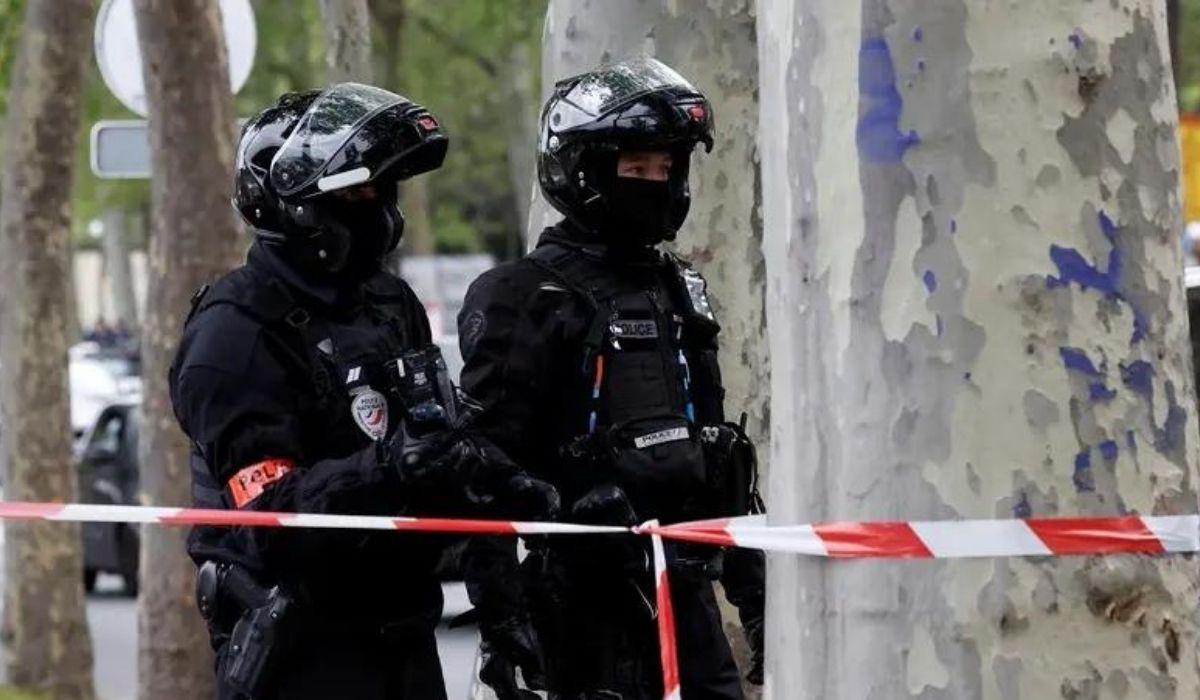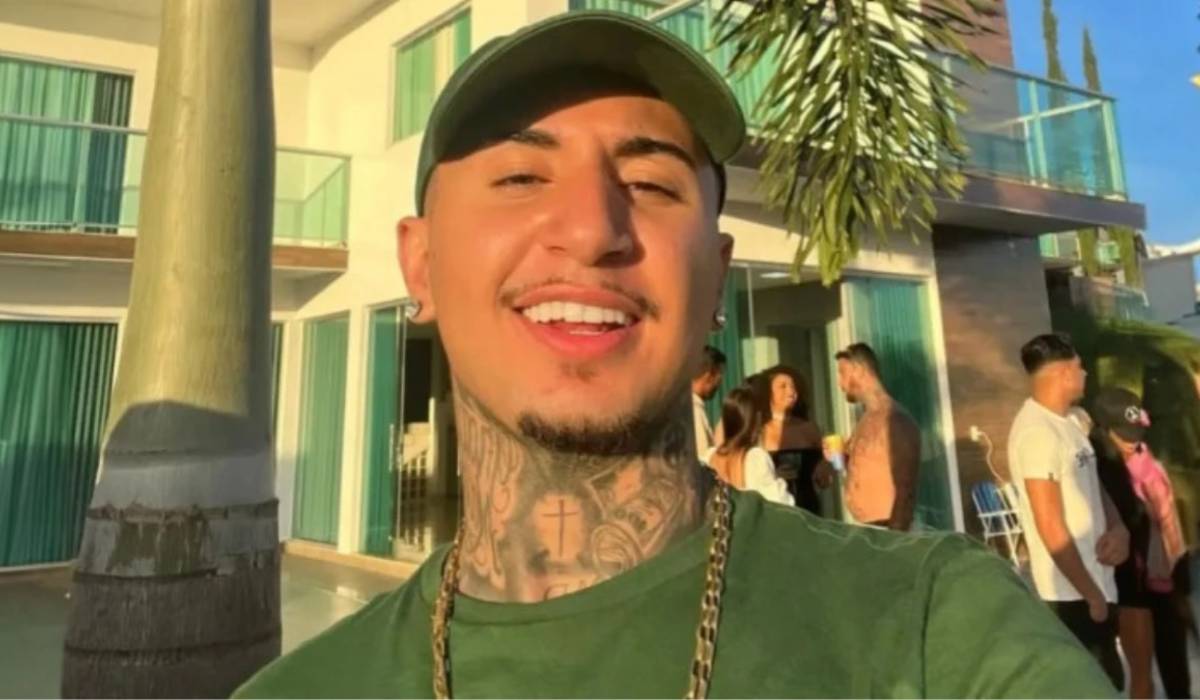Our colleagues make their defences at the eighth hearing of the Cumhuriyet trial
The eighth hearing of the trial in which eighteen of our columnists and managers are in the dock on charges raised against our editorial policy is being held today at Istanbul Serious Crime Court No 27 in the courtroom opposite Silivri Prison. Following the hearing which is planned to last until Friday, the judgment is expected to be announced.
15.40- Cumhuriyet newspaper lawyer, Mustafa Kemal Güngör addressed the court to make his defence on the merits. The key points from Güngör’s defence are as follow:
I reject all the charges against me. I am being tried for foundation membership. Cumhuriyet newspaper has become a defender of and school for the enlightenment of democracy. I was first its student and then its lawyer. This trial is not legal; it is a trial aimed at silencing and ending Cumhuriyet newspaper. This trial is also to intimidate all journalists and opposition circles. The mentality reflected in the indictment and recommendation is the clearest evidence of this. There is an omnibus indictment based on speculation which has not been made individual and accuses everyone and everything. These things have been rebutted one by one. As if none of this had happened, we face a subjective omnibus recommendation that does not reflect the truth in continuation of the scenario. It upset me as a jurist for such an unlawful recommendation to be drafted. There is nothing criminal about the articles published in Cumhuriyet. They were written to inform society. In spite of all objections, the basic principles of the law were not abided by in this trial. Our principle of a fair trial was violated. We were deprived of our freedom unjustly and unlawfully. Akın is still in jail. Unbelievably, the investigation was conducted from start to end by a prosecutor who is being prosecuted on FETO charges. Blatant lawlessness is involved and if you put yourselves in our places you would not accept it. There is a very important inscription behind you. Mr Binali Yıldırım is a pretty witty man. He said one day at a meeting held by the Ministry of Justice while we were in prison, “When we were small they used to write ‘Justice is the Foundation of the State’ in the cellars of legal complexes. And we used to think that justice was the foundation of the state because these words were written on the foundation floor.” Justice is still in the cellar. You are going to rule on Cumhuriyet, the most venerable newspaper to which Atatürk gave its name. This will have very great significance. It will have a close bearing on the people’s right to obtain news, journalism and the law. The ruling you pass will go down in the country’s history and it is your choice as to how it goes down. The decision is yours.
15.45- Our columnist Aydın Engin addressed the court to make his defence on the merits. The key points from Engin’s defence are as follow:
Why should a reply be given to this recommendation? It repeated the indictment. The prosecutor brought witnesses before us. And every witness demolished the indictment even further. With the accusation of causing loss to the foundation coming to naught, we were accused of changing the paper’s editorial policy. Yes, it changed and it changed without asking the prosecutor and we can do this frequently and will not obtain permission from the prosecutor, to boot. What is unchanging among us are the principles of the supremacy of the law, democracy and independent journalism. Nothing else is of concern to you. My texts with Osman Kavala were placed in the file. The prosecutor also clung on to these in the recommendation. We asked for support from professional organisations and civil society organisations in Europe. And we got it. They hugged Cumhuriyet. RSF, IPI, PEN. We are not the sort of journalists you are familiar with. The person or entity that can buy us has not been born of a mother’s womb. I have no personal request of you. I call on you to pay no heed to this recommendation about us. But, do not bin it, because it will be taught in law faculties. They will say in the future, “Do not draft such recommendations.”
15.50- Cumhuriyet Foundation Chair Orhan Erinç addressed the court to make his defence on the merits. The key points from Erinç’s defence are as follow:
I wish to state that I reiterate verbatim what I said at the Press Prosecution and during the hearings. However, I wish to initially state that this trial was brought and has been continued as a political press trial. Lying at the heart of the trial is the election held for membership of the Cumhuriyet Foundation that is the proprietor of Cumhuriyet newspaper being arranged in a manner that conforms to the political rulership’s expectations by two former Cumhuriyet employees who have more ambition than sense. In the action before Istanbul Civil Court of First Instance No 1, the General Directorate of Foundations also entered an application into the file seeking the dismissal of the unjust and unfounded claim. With Mustafa Balbay also wishing to become an intervening party in the action one day before the judgment hearing, judgment could not be passed and the hearing was adjourned. Over this process, as Atalay has proved with documents at the hearing, Alev Coşkun made tip-offs to the General Directorate of Foundations and the Presidential General Secretariat. Following the instruction the Secretariat gave the General Directorate of Foundations, things took a turn in the opposite direction. The opposite developments prior to and following the Presidential General Secretariat’s instruction constitute one of the pieces of evidence that the trial is political. The second proof, in turn, is that Mustafa Pamukoğlu, who has made an issue out of his inability to be elected, became the founding chair of Görev Foundation established by the publishing outlets of the Workers’ (now Motherland) Party, Aydınlık Newspaper columnist and economic adviser to the Workers’ Party General Chair. Essentially, the virtual majority of the witnesses heard at the hearing being members, officials and columnists of the Workers’ (now Motherland) Party constitutes another of the factors that add weight to the description “political trial.” My lawyers will make my defence. I retain the hope with which I say, “There really are judges in Istanbul.”
15.45- Our accounting employee Emre İper addressed the court to make his defence on the merits.
We are being prosecuted in a political trial in which only the defendants have changed. I believe myself to be giving press freedom the defence it deserves. You have granted the right to an additional defence over my Tweets that have not been raised until now. I reiterate my previous defence. Had I not worked for Cumhuriyet newspaper, I would not have come before you on contrived charges.
15.15- Cumhuriyet newspaper Editor-in-Chief, Murat Sabuncu, addressed the court to make his defence on the merits. The key points from Sabuncu’s defence are as follow:
Journalism is a labour of love. We are people who love our profession and our country. You must give love its due, whatever the price. This is sometimes being slandered, prison or trials. But, the personal prices we have paid are a mere bagetelle for us if this is what is demanded for society’s right to obtain news with the reports we have made. My newspaper Cumhuriyet, of which I am honoured to be part, is a newspaper that has always spoken of that which is hushed up and shown that which is unshown. Over its history, in periods in which democracy has fallen by the wayside, it has suffered slander and attack, its staff have gone to jail or been targeted by bullets for not deviating from the truth. We are part of this arduous and honourable history. We have come to the end of the politicial trial in which the aspersions cast at us have been rebutted one by one. We will leave this courtroom which we entered with our heads held high once more with our heads held high whatever the verdict. We will not abandon the road of Abdi İpekçi, Uğur Mumcu, İlhan Selçuk, Hrant Dink, Musa Anter and Metin Göktepe. The love they felt for this soil and all people living here despite all the injustices they suffered has been our guide. We will continue to passionately love true and courageous reporting, the country and the profession.
15.30- Our reporter Ahmet Şık addressed the court to make his defence on the merits. The key points from Şık’s defence are as follow:
When speaking of prisons, I start sentences saying, “When I was an Ergenekonist” or “When I was a FETOist.” As everyone knows, I now have two separate prison experiences. In the first, I was detained with my professional activites brought into issue in the charges under a conspiracy by the Gülen Brotherhood now known as FETO. As to the second time I was detained, it was because of the issues in these proceedings. I along with my colleagues fell victim to a conspiracy that was hatched at the behest of the political rulership that in the past committed crimes along with the Gülen Brotherhood whose coalition partner it was, and that was similar to the previous one. My professional activities were once more brought into issue in the charges. As in the first one, this conspiracy saw certain members of the security apparatus and judiciary and a section of the media staff who assumed a hatchet job role becoming party to the political rulership’s crime. On exiting Silivri Prison on 12 March 2012, the day on which my first experience of imprisonment of some thirteen months ended, I made a political pronouncement and said that the police officers, judges and prosecutors who had served in the conspiracy that led to my imprisonment would be detained. Those embroiled in the conspiracy, apart from those who have fled, are now all in prison. If you take away the law from the state, what remains is called a gang not a state. I am thus obliged to make the same political pronouncement that I made for the members of the Gülen Brotherhood’s gang for those who have roles and serve in this conspiracy. I wish for them to be tried in courts that that are guided by the universal norms of the law and are truly impartial and truly independent. I have said what I have to say about this conspiracy that precisely resembles the first following the passage of six years. I reiterate verbatim my first statement on 27 July 2017 and my first statements on 25 December 2017 that I was blocked from speaking in court, saying I could not make a political defence in this political trial. As always, I stand behind both my words and deeds, because journalism is not a crime.
15.00- Cumhuriyet newspaper lawyer, Bülent Utku addressed the court to make his defence on the merits. The key points from Utku’s defence are as follow:
There are faces/proclivities that will not be lost in my memory among my recollections of the Cumhuriyet newspaper operation and trial: enemy and friend, brave and cowardly, modest and swaggering, selfish and given to solidarity. Undoubtedly, all having to do with humans. I don’t know if you have noticed? There is a recommendation on the merits that both “stutters” and is also “loquacious.” This is what the indictment was like, actually. It twists and turns and says the same things without growing weary. It is generous without fault when it comes to groundless charges; it is as mean as mean can be with legality and lawfulness. But, it is also very bold. Such that it is still capable, heedless of the rules, of defending the operation which is conducted collectively against a portion of the managers and columnists of our Republic’s oldest and most venerable newspaper of 93 years’ standing and which is not in the least bit informed by the law. The recommendation on the merits stutters and is somehow incapable of explaining which crime was committed and how. It cannot say what crime there was in which report, which article or which headline. Seemingly, the foundation elections merit classification as a civil law dispute, but they had significance for determining our intent! Such a decimation, a decimation of the law, has never been seen. What does it do? It looks for the “element of intent” in an act that is not a crime. However, we know that in penal law “intent” is sought in the act that produces a typical result, that is, the crime. This “intent” forever sought by the prosecution in changes to the publishing line, headlines that were run, interviews that were conducted and articles that were written. Looking for “intent” in acts that are not crimes is most certainly a decimation of the law but, as I have mentioned above, it requires boldness and those who are staging and continuing the operation have plenty of such boldness, because they their sit in their posts with the comfort and security that comes from having the backing of the political rulership. Yes, as I have already said, this is a political operation, a political trial.
The prosecutor who drafted the recommendation on the merits is a prosecutor with years of experience. Does he not know that prosecution is to be conducted with regard to acts that took place until the indictment was drafted and are set out in the indictment? He knows, for sure. Not only a prosecutor of many years, but a prosecutor who has just entered the profession knows and should know this. How, then, can he raise the issue of the efforts of a defendant to obtain monetary support from abroad while the proceedings are in progress? Purporting and asserting that seeking European Union funds robbed the newspaper of its independence has absolutely no bearing on the trial. With the recommendation raising this issue and blowing it as material in the direction of the tribunes and pool media it actually shoots itself in the foot without realising it. For, it proclaims that state institutions and the state, which obtain funds from the EU, have lost their independence by virtue of this. It is impossible for jurists and people possessing an objective viewpoint not to immediately see the perception the recommendation on the merits wishes to create in listing acts that are not crimes and saying crimes were committed by extension out of them. Those having the least connection with the law and who have not lost their objectivitiy know that intent, a notion having to do with an element of CRIME, cannot be sought in the foundation elections, changes to editorial policy or articles/headlines that cannot even be classified as crimes. This attempt by the recommendation on the merits arises out of the difficulty and straits it is experiencing in imputing crimes and finding crimes and making them stick. In the desire to extend into crime out of non-criminal acts, the place the recommendation on the merits finally extends into and ends up in is the reports published, the headlines run and the articles written in the newspaper.
However, under these circumstances, what is expected of the recommendation on the merits is for it to indicate which crime there was in which of these articles, reports and headlines at issue in the charges. Of course, it cannot do this, because there is no crime in any of the articles, reports and headlines at issue in the charges. They are all exemplary of quality journalistic activity. They are correct, topical, on subjects that are of interest to the public and in the public interest and, at the same time, incorporate refinement, intelligence, intellect and courage to the degree required by journalism. I accept responsibility for all these reports, headlines, articles and interviews that the recommendation on the merits holds me responsible for.
The mentality of the recommendation on the merits is a mentality that opens the door for journalistic activity henceforth to be punished in an arbitrary manner despite the absence of a criminal element in reports and articles. It is the dawn of a new era. It is a significant and dangerous blow to the freedom of thought and expression. It is a significant threat and menace and scythe against journalism, journalists and the right of the people to obtain news. The charges brought in the operation conducted against Cumhuriyet newspaper have not struck a chord and courted credibility in society. On the contrary, a large section of society has stood by Cumhuriyet newspaper and us. Our names have been reeled off in the rally grounds and we were honoured with a stream of visits by lawyers and parliamentarians in prison.
You must have seen and heard in newspapers, on the television or in social media, but I do not know if you have cast sight on the lawyers who are holding a “Justice Watch” in front of the Themis statue at 11.30 every Thursday at Çağlayan judicial complex, and the journalists, academics and arts world people who join them. A Justice Watch has been held in this country for 55 weeks. One of our lawyer colleagues had his nose, and one of them his leg, broken in a police attack at the first watch. Some have been manhandled and arrested. Two months later, those who had been arrested were put on trial. But the justice watch crowd was not cowed. The justice watch, which was started around the lawyers being prosecuted in this trial, has been the hope of those who believe in and are seeking justice. Bar association chairs, journalists, politicians, writers, acadamics and arts world people have attended the Justice Watch and expressed their support in press statements and have made a contribution towards the quest for justice. The mounting by such different circles and people of such strong support for people who are charged with aiding terrorist organisations proves that society does not believe in this trial and the allegations raised. Moreover, this support is not restricted to the domestic sphere. This means, apart from partial people, nobody at home or abroad believes in the charges filed against us. There is actually no point in complaining about the rhetoric, logic and stance of the recommendation on the merits being repugnant to the law. Since what is expected in political trials is not the law but reaching the targeted goal, what is happening is actually what is supposed to happen. I mean, this is what political trials are like. In political trials, in prosecutions brought in extraordinary periods, political ruling bodies pressurise prosecutors and judges and bring them under their control. Some of them in fact are anyhow bursting to please the rulership. You cannot see a judiciary that has not been shaped under a plan and programme and brought under control in any extraordinary period. And justice most certainly will not emerge from these proceedings. If you want an example, I can cite the Yassıada trials, the 12 March trials, the 12 September trials, the Ergenekon trials. Who could ask us for any realistic, sound and valid arguments for believing we will receive a fair trial with these examples before us and while passing through an extraordinary period? Nobody, of course. Given the existence of such a recommendation, what I wonder is the fate that awaits us/me? The recommendation invites me to speculate whether it would not be fairer for me to be subjected to the “water ordeal.” Those who have visited the Anatolian Civilisations Museum in Ankara know that this practice is spoken of at the place where the engraved tablets are to be found. Through the “water ordeal,” a person can prove their innocence through their own efforts. And, anyhow, the Water Godess will hardly approach cime politically. Come what may, she is a godess! There is no need to go on at length. I have long since stated my views on the indictment out of which the recommendation on the merits has risen and the trial I had forseen your bench would hold. I noted the position your bemch adopted with regard to this indictment that is repugnant to the law in my application for recusal of the bench of 09/05/2017. I said what I had to say about the indictment at the 25 July 2017 hearing. My colleagues and our lawyers have also set out their thoughts. But, it is clear that the hearing prosecutor has paid no heed to any of these things that were said and his recommendation on the merits is more or less a summary of the indictment.
I will thus make do with reiterating my earlier statements.
It is apparent that the objective and subjective conditions are absent to enable your bench to add feeling and conscience to what can be comprehended in an objective world and to turn this into a ruling. I also stated this in a way in my submission of 9/05/2017. The adolescent-nature interim decisions that have been passed since the outset of the trial also confirm the absence of these conditions. So, it is my opinion that, as in all political trials, justice will not emerge from this trial, either. I hope I am mistaken. Extraordinary periods to not remain extraordinary. They have never done so. Our recent history even tells us this and there is no need for much evidence. If your bench says, “Intermission” there is nothing for it and the curtain will come down. But, this situation is no obstacle for “curtains” to be said under ordinary conditions. Yes, “curtains” will be said for sure. And, in my view, not before too much time has passed. And on precisely that day I will await the changed roles, plays and actors with excitement. Stay healthy and hope to meet again.
12.30 - Akın Atalay started his defence on the merits. The key points from Atalay’s defence are as follow:
In the Ergenekon trial indictment, it was said with reference to İlhan Selçuk that, “He had his newspaper bombed three times in one week to create chaos in the country with the aim of overthrowing the government.” So, where do we stand?
İlhan Selçuk wrote in his article, “A bomb thrown at a newspaper is a threat aimed at all the media. All newspapers will come out in solidarity regardless of whose side they are on and back up the rulers. People of unknown identity threw a second bomb at Cumhuriyet, hiss. I hope that after the three bombs, our government and our state will wake up. Actually, after the third bomb it elicited the desired reaction, but how are we to always find three bombers?”
He wrote this after the third bomb in reaction to the press giving coverage to it. The Ergenekon prosecutors, taking the event out of context, wrote in the indictment, “He had his own newspaper bombed.”
Certain journalists who had succeeded in being the leading journalists of all periods and who acted in accordance with the spirit of the time also took this claim very seriously then. Today, looking at the crimes included in the indictment against us, we need insurance.
This trial’s prosecutors act and think like the Ergenekon prosecutors. They steal from people’s lives and cause great injustice. I read the indictment drafted against us, twist and turn it, but still cannot understand. The aim is clear: to secure Cumhuriyet’s surrender, deliver it into obedient hands and cow other newspapers and journalists.
Just as İlhan Selçuk was accused of having his own newspaper bombed, we may encounter an absurd accusation in the future of colluding with prosecutors and judges and having ourselves detained.
This is no ordinary trial. So as to besmirch us, accusations that were beyond absurd were levelled at us during the investigation. Unashamedly and immorally, accusations were put into circulation. We heard them on television or they were even placed in the indictment.
Examination was commissioned of bank accounts and statements right down to the ex-wives and relatives of the defendants on trial here. Allegations that led to them being identified in public as parquet layers and pitta vendors did the rounds and came back to clobber their makers.
Secondly, examination was commissioned of all ties Cumhuriyet newspaper and its foundation’s ties and its advertisers. A comparative account was given of how much advertising FETO-related companies gave to which newspapers per year. So, what happened? Have those papers been prosecuted? No.
But the unjust accusation was dispensed with and this aspect of the indictment was not pushed further. If the prosecution is to investigate which newspapers FETO-related companies supported by means of advertising, it is still not late. I look at all the papers in prison and first examine the papers’ advertising pages. Companies to which curators have been appointed still continue to place adverts in the same papers and to transfer funds to them. Our newspaper has no dealings with that dirty money. Let them do what they want, just let them not splatter us with mud, that is all. I mean, we supposedly made the paper and foundation go bust financially and improperly sold and transferred immovable properties at below market value, you know. Come and investigate. It will be seen that the defendants on trial here did not make the newspaper and foundation go bust, but straightened them out.
If we come to the spirit of this trial... It has been openly stated within the proceedings that publishing activity as a whole is at issue in the trial. In short, it has been stated that the offence of aiding an organisation has been committed through publishing activity as a whole. What is said in a normal trial? The important thing is whether or not the charge and act are interconnected and whether it is against the law. However, here Cumhuriyet newspaper’s publishing activity is seen as being a crime, journalism is seen as being a crime. What does it mean to prosecute publishing activity as a whole and accuse journalism? Are you aware of the danger? Cumhuriyet newspaper has no other business apart from journalistic and publishing activity. Unlike other newspapers, it has no other commercial partnerships. This newspaper cannot be pressurised through economic means on account of this.
The duty of newspapers and journalists is to ensure that society is informed and create quality information and pass this on to society. Were journalism to be evaluated like other commercial activity, it would have to abandon criticism as the basic aim would be to earn money for its owner. If it moves away from journalism’s fundamental aim of the truth and gives consideration to commercial goals and political aims, that business will not be journalism. The right of the people to obtain information and be informed about state affairs happens through the press. This country’s largest media group was seized a few weeks ago. Following this change, what is at stake in this trial has become much more important. This is a political trial. They now want to take media organisations and the press under control. But, you cannot take surrender of this newspaper by scaring it with duress and threats. You cannot take surrender of its journalists and publishers through detaining them.
This newspaper’s employees and managers have previously been killed, detained and threatened. Now we are being tested once more. If need be, we will take the ultimate risk. This newspaper and its members do their job as called for despite duress and threat. They cannot be frightened through trials of this kind.
Prohibitive, oppressive and unlawful practices should be opposed and they should be cleansed from the law. Not just the press freedom of a newspaper that has been published for 94 years is involved, but this society’s freedom and honour. A Norwegian crime writer compares the law to a fence erected next to a precipice and trampling on the law to breaking this fence. In this trial in which journalism is in the dock and freedom of expression is trampled on, I will end my words with these lines that Tevfik Fikret spoke a century ago:
“We have seen all kinds of injustice. Is this the law?
We have fallen into the direst of poverty. Is this the state?
If this is the state and this is the law, enough at last.
Enough at last of this vile oppression of ignorance.” (13.10)
14.30- Güray Öz addressed the court for his defence on the merits and said, “I reiterate the defence I made before. I reject all the charges.”
14.45- Our cartoonist Musa Kart addressed the court to make his defence on the merits. The key points from Kart’s defence are as follow:
I have been drawing cartoons for nearly forty years. Over this time, I have witnessed many political periods and leaderships. I can say the period we are going through is the one that is furthest from the law and justice. After having left prison, I have shaken hands and embraced with many people. Not even one of them said, or could have said, “Your trial is not political.” These courtrooms have witnessed the stance of honourable and honest people in the Cumhuriyet trial. Those who wanted some of their dirt to rub off on us over this process were unfortunately incapable of knowing that it would not stick on us. I have no request for myself at this judgment hearing. I must repeat that the image showing opposition journalists, politicians, academics and students in jail does not become my great country.
11.10- Cumhuriyet newspaper Executive Board Chair Akın Atalay, who is in pretrial detention, made his reply to the expert’s report. The key points from Atalay’s statement are as follow:
Cem Küçük has written, “Cumhuriyet newspaper has become a toy in FETO’s hands and Cumhuriyet, which has passed into FETO’s hands, will be returned to its proper owners by court order.” The first witness to whom recourse was made in the lawsuit that Alev Coşkun brought at the Civil Court of First Instance and in the FETO investigation was Cem Küçük. Apart from Küçük, there is no other witness’s testimony until the search and arrest orders were carried out. The operation on no less than Cumhuriyet newspaper was conducted following this individual’s statement and the operation was based on this person’s statement.
Let us recall: Alev Coşkun files the lawsuit one day after the Tweet Mustafa Balbay posted in reaction to his column being discontinued on 4 February 2016. On 22 March 2016, Alev Coşkun also sends an anonymous tip-off letter to the Presidential General Secretariat and says that Cumhuriyet newspaper has been removed from its orbit and has come into a position where it aids terrorist organisations. Based on Küçük’s statements about the paper’s managers on 19 July 2016, proceedings are brought for FETO membership. then the newspaper managers are apprehended and placed in detention. Among the allegations are that the executive board membership election held for one person did not comply with the law and the foundation was taken over. A Tweet written in Can Dündar's handwriting is included among the evidence but, on inspection of the content, it appears to have no bearing on this case. It is connected to me simply because it was written on headed notepaper belonging to me. By a quirk of fate, the date of the Tweet is 17 December 2015. However, he must have been in Silivri Prison on that date because he was detained in connection with the intelligence agency trucks’ investigation. Can Dündar was brought from Silivri to Çağlayan at that time. I was also there as an attorney at that hearing. Dündar asked me for some notepaper during the hearing and gave this message to his friend for it to be posted on his Twitter account.
11.30- Cumhuriyet newspaper columnist Kadri Gürsel makes his defence:
The prosecution alleges that I aided an organisation while not a member, I contacted phone numbers that pertain to FETO’s publishing outlets and I committed the offence of aiding terrorist organisations by virtue of my being a publications consultant for 34 days. I reject this in full. I stand charged due to the article, “Erdoğan wants to be our father.” I will have one or two things to say about the hearing prosecutor’s recommendation that repeats the indictment. The accusation against me is political, not legal. There is the claim in the grounds for detention that I wanted to rebel. Why did the prosecutor bring this claim to which no credence was attached even in the indictment into the recommendation?
Has fresh evidence emerged? Has a fresh witness emerged? No. The learned prosecutor is under pressure to bring charges for the article, “Erdoğan wants to be our father.” The allegation that I knowingly and willingly aided an organisation is not true and this claim is groundless. I am opposed to violence. My coming out in opposition to Erdoğan being displayed as a father figure cannot be portrayed as a call to violence.
If the prosecution looks at the HTS records, it will see that I neither called anybody from the Samanyolu company, nor was I called by them. Even if I was once called by Abdülhamit Bilici, it was claimed unjustly in the recommendation that I made contact with FETO defendants on many occasions.
I was acquainted with Abdülhamit Bilici when I was heading the Milliyet Foreign News service and he was the manager of the Cihan News Agency. The calls made to me from Feza Gazetecilik were made for the purpose of obtaining an opinion from me, but I did not supply them with any opinion. The prosecution ignores my 32-year professional life. You cannot prosecute journalists with reference to the nature of those who call journalists and send them messages.
You must look at the content. But, you cannot look at the content of the articles I have written and prosecute me because there is nothing of a criminal nature in them. All that is involved is them trying to contact me. Communications and discussion are not unilateral, while the SMSs were unilateral and had no reply. I have not established communications in any way with the senders of these SMSs to me. I am a journalist known for my opposition views. At the time I was being inundated with SMSs, I was writing articles for a mainstream newspaper and I was on a mainstream TV programme. It is impossible for those subject to FETO investigation and ByLock users to make a person into an aider and abettor by sending SMSs. Journalistic activity cannot be regarded as a crime in any democracy. Journalism is not a crime. The prosecutor has not evidenced the claim that I made frequent and many communications with FETO members. Apart from the said people, İştar Gözaydın is a person I have known since the 90’s. The prosecutor has not asked me a single question as to why I communicated with Gözaydın. Is the article, “Erdoğan wants to be our father” evidence? Is my 34 days as publishing consultant evidence? Is writing a column twice a week evidence? The last search that was made of me stretches back six months before the Cumhuriyet trial. The recommendation on the merits wishes to criminalise Cumhuriyet’s reports, columns and headlines. It alleges that I committed the offence of supporting terrorist organisations.
The prosecutor has confessed to a truth: It is alleged that I made a contribution towards changing the paper’s editorial policy, noting that I attended two of the newspaper’s four editorial meetings as a columnist from May 2016 and as a publishing consultant from September 2016. However, it flies in the face of reason for me to have been involved in editorial change that is alleged to have commenced earlier over 34 days without assuming an executive post. The prosecutor adduces as evidence of crime the meetings I attended in my 34 days as publishing consultant. It is insinuated that my attendance at meetings at which news reports were presented is a crime element, that is, that the news reports were crimes. It is unacceptable for Aydın Engin's attendance at editorial meetings to be construed as a crime element and for the reply I gave to a question the prosecutor posed to me to be adduced as evidence. The attendance by figures who are experienced in professional terms at editorial meetings is a tradition stretching back to the Babıali quarter and is normal. The prosecutor is unable to prove his accusations but repeats them. If my joining Cumhuriyet had been a process, it would have to have started with my being removed from my post by Milliyet’s boss ten months ago.
Kadri Gürsel ended his defence seeking his acquittal. (12.13)

En Çok Okunan Haberler
-
 Erdoğan ‘Kent Lokantası’na inanmadı
Erdoğan ‘Kent Lokantası’na inanmadı
-
 Saldırı sonrası İran'dan ilk açıklama
Saldırı sonrası İran'dan ilk açıklama
-
 'Ben artık Fenerbahçeli değilim'
'Ben artık Fenerbahçeli değilim'
-
 AKP'de 'Rolex' kazası: Paylaştı, sildi
AKP'de 'Rolex' kazası: Paylaştı, sildi
-
 Altından yeni rekor!
Altından yeni rekor!
-
 Karaköy sahiline havuz!
Karaköy sahiline havuz!
-
 'Bu akşam geç geleceğim eve'
'Bu akşam geç geleceğim eve'
-
 İzmir'de deprem!
İzmir'de deprem!
-
 Erdoğan’dan flaş İsrail-İran açıklaması
Erdoğan’dan flaş İsrail-İran açıklaması
-
 Özel, çantası dolu gidecek!
Özel, çantası dolu gidecek!


